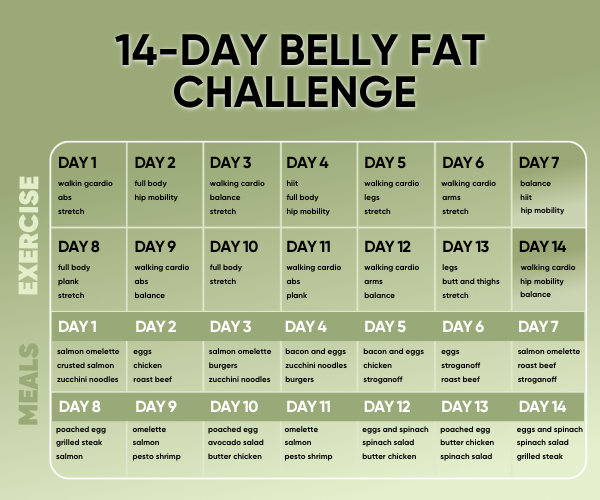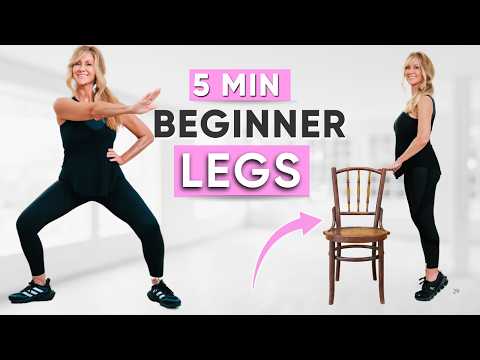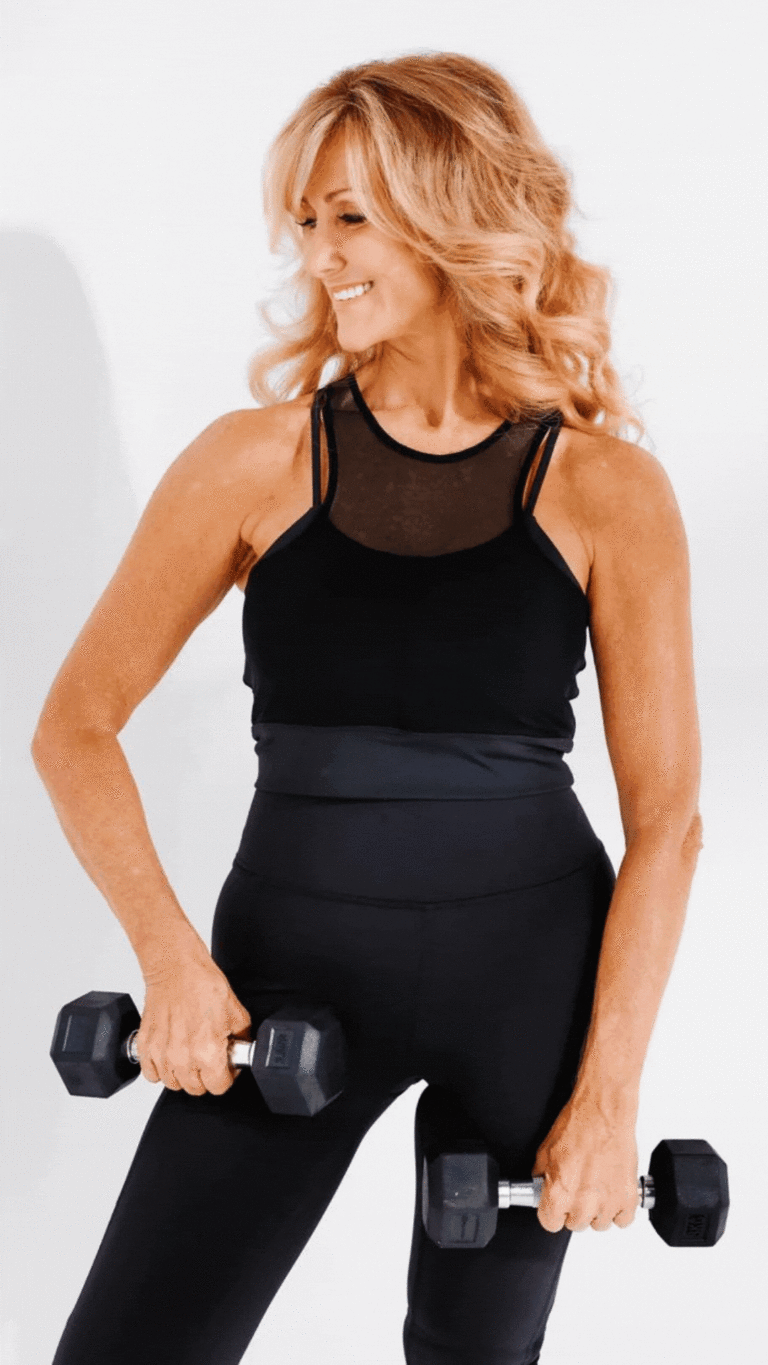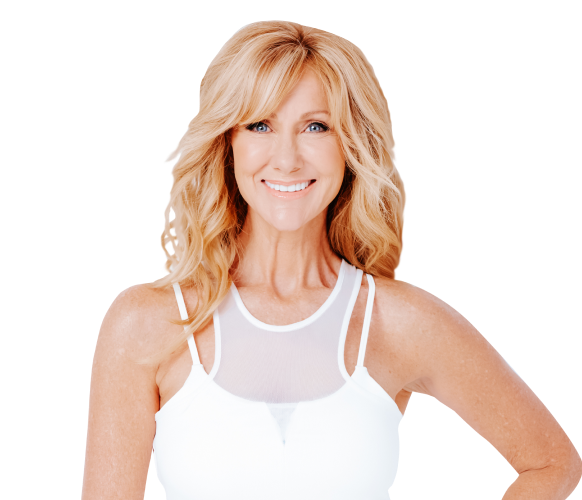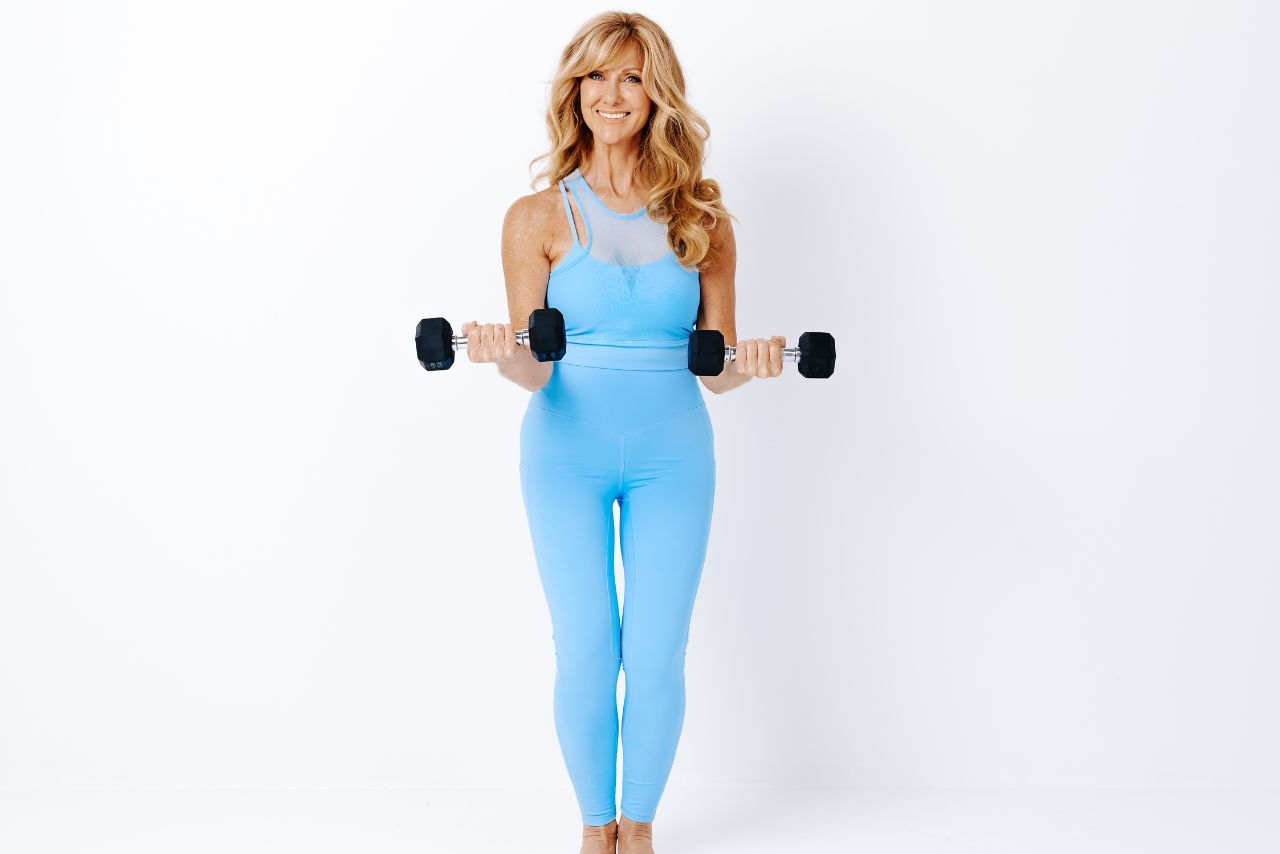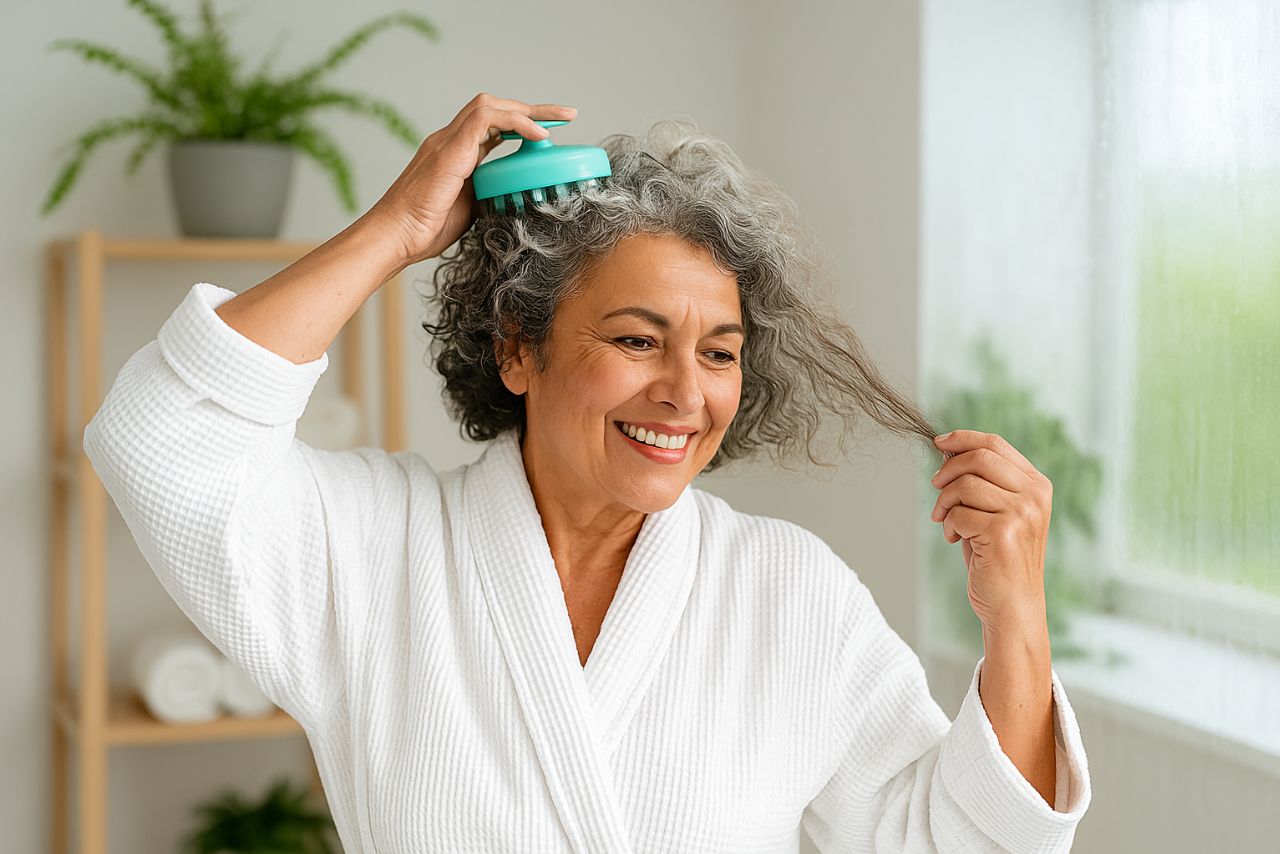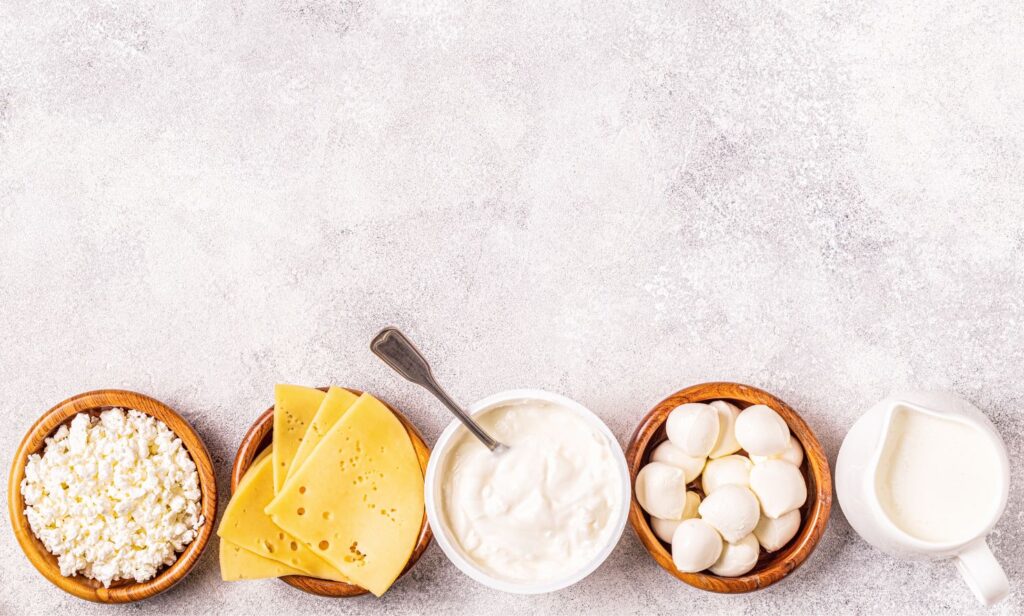
You may have heard of probiotics and prebiotics if you’re striving to improve your health. These two buzzwords often pop up in discussions about gut health and overall wellness.
Knowing the roles and benefits of probiotics and prebiotics can make a huge difference in your health, affecting everything from your immune system to your digestion.
But what exactly are probiotics and prebiotics, and why are they important?
Let’s take a look at these beneficial microorganisms and explore how they can contribute to your well-being.
Probiotics and Prebiotics
Probiotics are live microorganisms that are good for your health when you eat enough of them. They help keep the balance of gut bacteria healthy, which is why they are often called “good” or “friendly” bacteria.
Prebiotics, on the other hand, are fibers that can not be digested. They feed probiotics and help them grow and multiply in the gut.
It is very important to have a healthy gut because it helps with digestion, absorbing nutrients, and immune system function.
Probiotics and prebiotics support the gut’s delicate ecosystem by working together to keep the balance of good and bad microbes healthy.
Types & Sources of Probiotics
Probiotics are different types of bacteria and yeast, and each has its own benefits and properties. These are some of the most studied types of probiotics:
Lactobacillus helps keep your digestive system healthy and your immune system strong.
Bifidobacterium builds up good chemicals like short-chain fatty acids and helps break down complex carbohydrates.
Saccharomyces boulardii is a good yeast that can help with digestive problems like diarrhea.
Streptococcus thermophilus is often used to ferment dairy products and may help the body break down lactose.
You can also find probiotics in many foods and dietary supplements. Fermented foods have a lot of probiotics, which are found in foods such as:
Yogurt has live cultures of bacteria in it, like Streptococcus thermophilus and Lactobacillus bulgaricus.
Kefir is a fermented milk drink that has many different kinds of probiotics.
Kimchi is a traditional Korean dish made from vegetables that have been fermented and are high in Lactobacillus bacteria.
Sauerkraut is fermented cabbage that has good strains of Lactobacillus in it.
Besides fermented foods, you can also get probiotic supplements in the form of capsules, tablets, and powders. This is an easy way to increase your probiotic intake.
Benefits of Probiotics
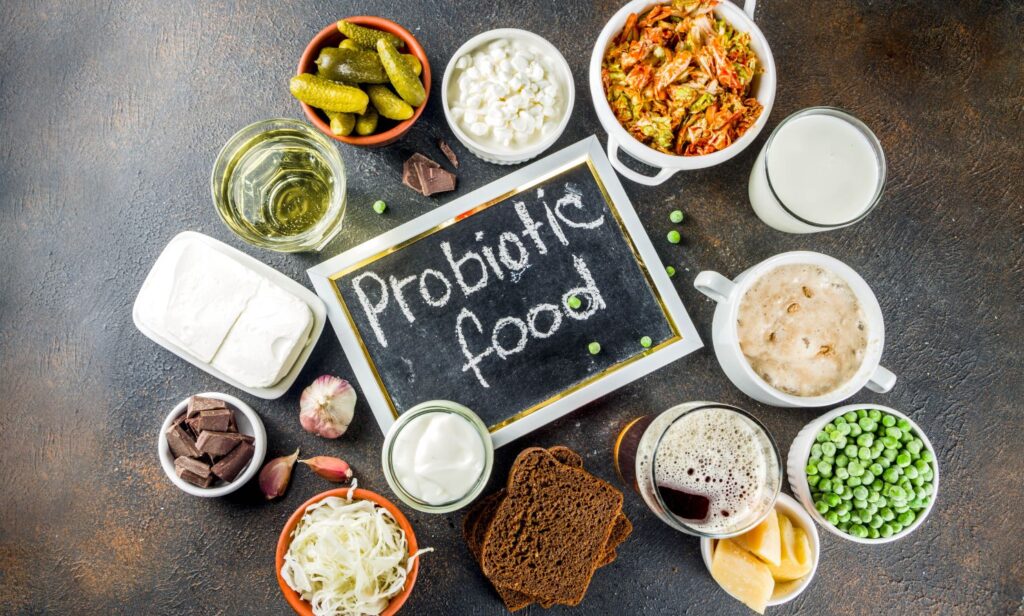
Consuming probiotics regularly can confer several health benefits, including:
- Better digestion: Probiotics help keep the balance of bacteria in the gut healthy, which lowers the risk of digestive problems like gas, bloating, and constipation.
- Immune system boost: Probiotics can boost the immune system and lower the risk of getting infections by supporting a diverse and strong gut microbiota.
- Helping with some health problems: Studies shows that Probiotics may help with irritable bowel syndrome (IBS), diarrhea, and other stomach problems.
Types & Sources of Prebiotics
Even though probiotics get most of the attention, prebiotics are just as important for gut health. There are different kinds of probiotic fiber that help probiotics grow in the gut by giving them food. Here are some common prebiotics:
Inulin is a soluble fiber that helps good bacteria grow in the colon. It can be found in foods like chicory root, garlic, and onions.
Fructooligosaccharides (FOS) are prebiotics that help bifidobacteria grow in the gut. They are naturally found in foods like bananas.
Galactooligosaccharides (GOS) are found in some grains and legumes. GOS helps good bacteria grow in the gut and may improve digestive health.
There are a lot of prebiotics in plant-based foods, which makes it easy to add them to your diet. Some of the best sources of prebiotics include:
Some whole grains, like oats, barley, and wheat, have insoluble fibers that help keep your gut healthy and regular.
In bananas, you can find prebiotic fiber, which feeds good bacteria in your colon. Bananas are high in resistant starch and pectin.
Onions and garlic smell great, and they have inulin, a type of prebiotic fiber that helps good bacteria grow in the gut.
Beans, lentils, and chickpeas are great sources of prebiotic fibers like GOS, which help keep your gut microbiome healthy.
Giving your gut healthy bacteria by eating a variety of prebiotic-rich foods can help keep your digestive system healthy overall.
Benefits of Prebiotics
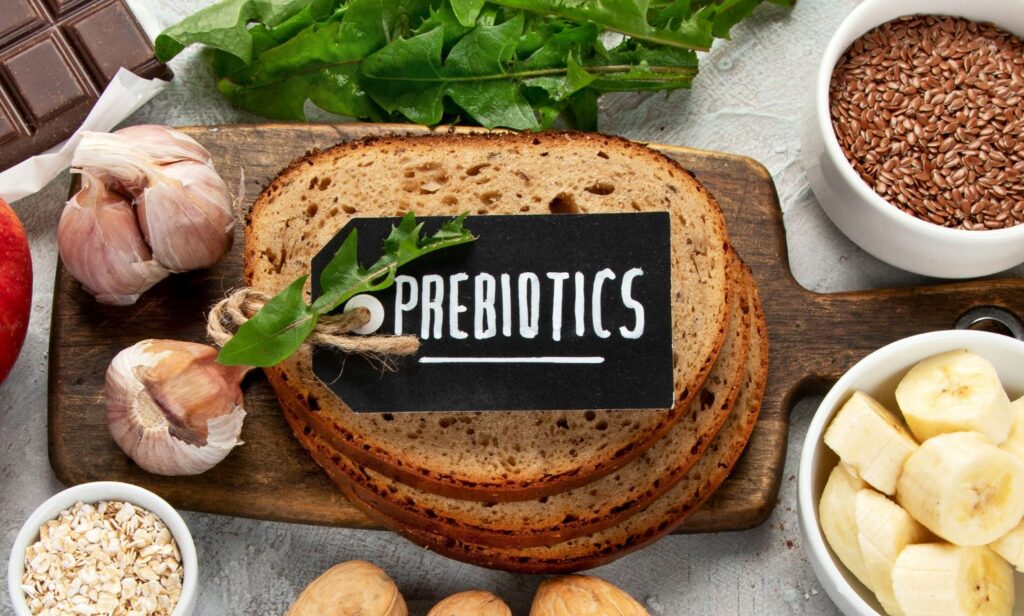
Prebiotics offer several health benefits, including:
- Support for probiotic growth: Prebiotics give probiotics food, which helps them grow and multiply in the gut.
- Better gut health: prebiotics help keep a healthy balance of gut flora by encouraging the growth of good bacteria. This lowers the risk of digestive problems.
- Blood sugar regulation: Some prebiotics, like inulin, have been shown to make insulin work better and keep blood sugar levels in check. This may lower the risk of getting type 2 diabetes.
Probiotics vs. Prebiotics: What’s the Difference?
Even though both probiotics and prebiotics are important for gut health, they do different things. Probiotics are live bacteria that are good for you, and prebiotics are foods that these bacteria need to grow.
In addition, Probiotics help maintain a healthy balance of gut flora and support various aspects of digestive and immune health. Prebiotics serve as fuel for probiotics, helping them thrive and multiply in the gut.
Probiotics and prebiotics work together to improve gut health. Prebiotics give probiotics the nutrients they need to grow.
Combining Probiotics and Prebiotics for Optimal Gut Health
There are many benefits to eating both probiotics and prebiotics, so you might want to include both in your diet. When you eat foods that have both probiotics and prebiotics, they can work together to improve your gut health. Here are some foods that have both probiotics and prebiotics:
There are a lot of probiotics in yogurt, and it also has lactose, a type of prebiotic sugar that helps good bacteria grow.
In addition to having prebiotic fiber, bananas also have probiotics that are found naturally and help keep your gut healthy.
Garlic and onions are tasty vegetables that have prebiotic fibers and compounds that help good bacteria grow in the gut.
You can support a diverse and strong gut microbiome by eating a variety of foods that are high in probiotics and prebiotics. This is important for your overall health and well-being.
READ ALSO: 25 Essential Superfoods Women Over 50 Can Eat Daily for Longevity
How to Choose Probiotic and Prebiotic Supplements
When choosing probiotic and prebiotic supplements, it is important to think about a few things to make sure they work and are safe:
As different probiotic strains may have different health benefits, choose supplements that contain strains that have been backed by science for your needs.
Check for supplements that have a high colony-forming unit (CFU) count. This number tells you how many live bacteria or yeast are in each dose.
Choose supplements that can stay on the shelf for a long time and have been through a lot of tests to make sure the probiotic organisms will still be alive after the expiration date.
READ ALSO: The Ultimate Anti-Aging Supplement Blueprint For The 55-Year-Old Woman
Tips for Adding Probiotics and Prebiotics Into Your Diet
If you’re looking to boost your intake of probiotics and prebiotics, consider the following tips:
Start by adding small amounts of foods that are high in probiotics to your diet. This will give your body time to get used to them.
Eat a variety of foods that are high in probiotics and prebiotics to make sure you get a wide range of good bacteria and fibers.
Keep an eye on how your body reacts to probiotics and prebiotics, and change how much you take based on your own preferences and tolerance.
Probiotics and Prebiotics for Specific Health Conditions
Researchers have looked at how probiotics and prebiotics might help with different parts of health, such as:
- Digestive disorders: Probiotics may help alleviate symptoms of irritable bowel syndrome (IBS), inflammatory bowel disease (IBD), and other digestive disorders by promoting a healthy balance of gut flora.
- Immune system support: Probiotics can boost the immune system and lower the risk of getting infections by promoting a diverse and healthy gut microbiota.
- Skin health: New research suggests that probiotics and prebiotics may help keep skin healthy by changing the gut-skin axis and lowering inflammation.
While more research is needed to fully understand how these effects work, adding probiotics and prebiotics to your daily routine may prove helpful for some health problems.
Potential Side Effects and Risks
Even though probiotics and prebiotics are safe for most people, they may have side effects for some women.
When adding probiotics or prebiotics to their diet for the first time, some people may get gas, diarrhea, or bloating.
Some women may be allergic to certain strains of probiotics or prebiotic fibers, which can cause bad reactions.
If you already have a health problem or a weak immune system, taking probiotics may make harmful bacteria grow too much, which can make you more likely to get an infection.
If you experience persistent or severe side effects after taking probiotics or prebiotics, discontinue use and consult a healthcare professional for guidance.
READ ALSO: Food Or Supplement Probiotics: Which Is Best For Menopausal Women?
Myths and Misconceptions About Probiotics and Prebiotics
Probiotics and prebiotics are becoming more and more popular, but there are a lot of myths and false beliefs about them. Let’s debunk some common myths:
All probiotics are the same: In reality, every strain of probiotic has its own properties and may have different health benefits.
Probiotics are only good for your gut: Probiotics are famous for helping your gut, but new research shows they may also help your immune system, mental health, and more.
There is no need for prebiotics. Prebiotics are necessary for overall gut health because they help probiotics grow and keep the balance of gut flora healthy.
Closing Thoughts
It is important for gut health that probiotics and prebiotics work together. This is because probiotics and prebiotics are like two-legged friends.
Always keep in mind that a healthy gut is the key to a healthy body.
Taking the right probiotics and prebiotics to support your gut flora is a big step toward better health.
♡ Love ♡,
Schellea

